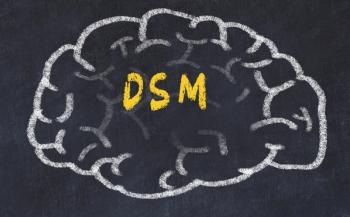
Phase 3 Study Finds Subcutaneous Ketamine Safe and Effective in TRD
In the largest study of its kind to date, researchers found promising results for subcutaneous ketamine for treatment resistant depression.
A phase 3 study found subcutaneous racemic
The 4-week trial studied subcutaneous administration of racemic ketamine, with midazolam as an active control. Adult participants (age ≥18 years) were recruited from 6 specialist mood disorders centers in Australia and 1 in New Zealand. Patients met DSM-5 criteria for
Participants received subcutaneous racemic ketamine hydrochloride 0.5 mg/kg ketamine or 0.025 mg/kg midazolam, both of which was delivered into the abdominal wall. Both groups received treatment 2 times per week with a minimum of 3 days between treatments as part of the double-blind protocol. The investigators revisited drug dosage after 51 participants failed to remit; as a result they instituted flexible response-guided dosing in the second cohort. Dose escalation steps (0.6, 0.75, and 0.9 mg/kg ketamine and 0.03, 0.0375, and 0.045 mg/kg midazolam) were used if participants did not achieve 50% improvement in MADRS from pretreatment baseline at sessions 2, 4, and 6. The primary outcome was remission defined as MADRS score ≤10, and secondary outcome was a ≥50% reduction in MADRS scores and a MADRS score ≤12 (ie, remission). The fixed-dose cohort consisted of 73 participants, and 108 participants were in the flexible dose cohort.
Although the fixed dose cohort failed to achieve significant difference on the primary and secondary outcomes, the investigators found a significant difference between treatments for the second cohort. Specifically, remission rates defined as MADRS score ≤10 were 19.6% and 2.0% for ketamine and midazolam, respectively (OR = 12.11, 95% CI 2.12–69.17, P = 0.005) and 22% and 4% (P = 0.007) for MADRS ≤ 12 for ketamine and midazolam, respectively. The investigators noted the difference between the ketamine and midazolam remission rates reduced (8.0% versus 2.1%, respectively; OR = 2.02, 95% CI 0.40–10.28, P = 0.4) 4 weeks after the last treatment.
Overall, the investigators determined a favorable safety profile, with minimal adverse events. In the fixed dose cohort, there were 2 reports from the midazolam group (suicide attempt and mood deterioration); none of the participants receiving ketamine had an adverse event. In the flexible dose cohort, there were 2 adverse events associated in the group receiving ketamine and deemed related to the study (auditory hallucinations and major dissociative episode); 3 adverse events in the midazolam group (suicide attempt, increased suicidal ideation, and wrist injury) were deemed unrelated. Skin rash, increased anxiety, headache, and increased depression were also experienced in the ketamine group, which led to discontinuation (2 in each in cohort). Similarly, acute effects of ketamine (eg, psychotomimetic and blood pressure elevation) were noted, but resolved within a 2 hour observation window.
“In this severely treatment-resistant population, of which 24% had failed to respond to treatment with electroconvulsive therapy, adequately dosed racemic ketamine produced benefits that were large, being both clinically and statistically superior to midazolam,” the authors concluded. Based on their findings, they added, “The subcutaneous route is practical and feasible.”
Reference
Loo C, Glozier N, Barton D, et al.
Newsletter
Receive trusted psychiatric news, expert analysis, and clinical insights — subscribe today to support your practice and your patients.







